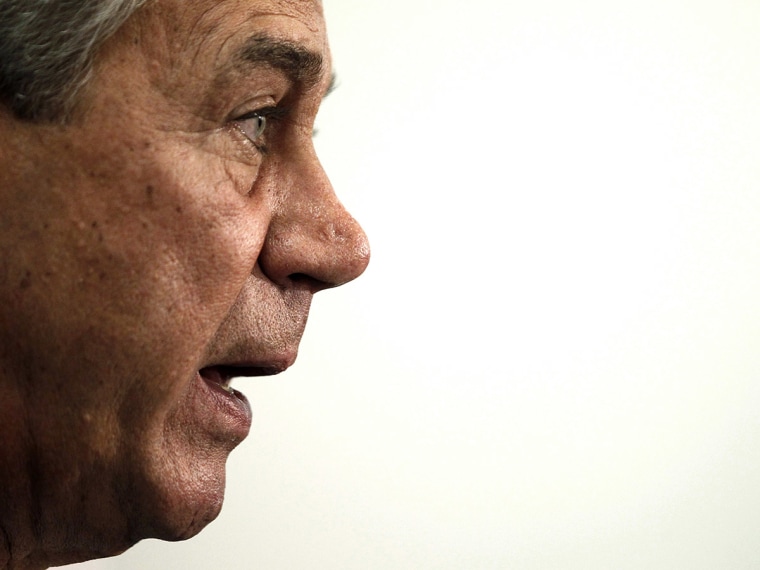If Congress doesn't do something—and fast—the government is going to shut down in four days.
And there's little sign a breakthrough is coming.
In a series of votes Friday afternoon, the Senate passed a stop-gap measure Friday afternoon, which would keep the government open temporarily. The proposal now heads back to the House, where it's a non-starter, since it doesn't defund Obamacare. President Obama has promised to veto any bill that cuts funds to his signature legislative achievement.
That's left the pressure on House Speaker John Boehner. He lunged at a new strategy Thursday, hoping to get his conference to come along on a short-term spending deal by offering them a conservative wish-list of items in the upcoming fight over the debt ceiling. Republican demands included a one-year delay of Obamacare, and conservative shifts on economic and regulatory policy, as the price of raising the nation's borrowing capacity. As New York magazine's Jon Chait noted, they amount to enacting the agenda of the man who Obama defeated in last fall's election, Mitt Romney.
Obama has vowed not to negotiate over the debt limit, citing the dangerous precedent it would establish. Rep. Nancy Pelosi, the House Democratic leader, underlined that message in comments to reporters Friday. "The full faith and credit of the United States is non-negotiable," Pelosi said.
But it's not even clear that the debt ceiling strategy will attract enough GOP support in the House. Already some Tea Partiers have said it doesn't go far enough. That leaves the shutdown a looming threat.
Without a deal, a government shutdown affecting a variety of federal services from national parks to soldiers' paychecks, could come Tuesday. The budget year ends September 30.
A shutdown would hurt the economy and harm hundreds of thousands of federal workers. But a debt default would be far worse, preventing the U.S. from re-paying its creditors, risking the country's credit rating, and potentially making it far harder for the U.S. to borrow money in the future.
Friday's Senate vote on the stopgap funding measure came in four separate pieces. First was a cloture vote to end debate on the bill, which passed by 79-19. Then Senate Majority Leader Harry Reid held a procedural vote aimed at streamlining the rest of the process, so that the bill can be passed in one day. That passed by 68-30. Next came a vote to replace the funding for Obamacare that the House took out, which passed 54-44. Last, a vote on the final bill passed by the same count.
NBC's Kelly O'Donnell and MSNBC's Suzy Khimm contributed to this report.
